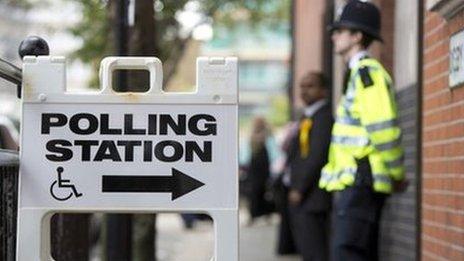Could e-voting be on its way in the UK?
- Published
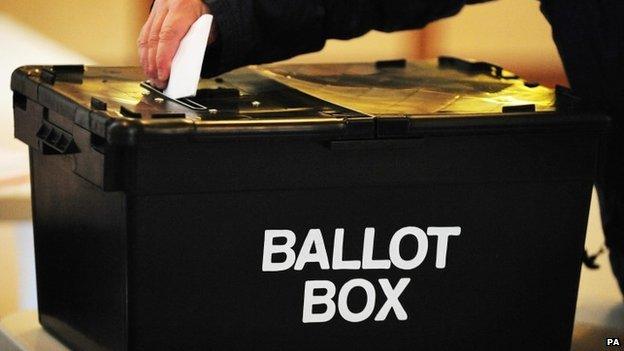
There's a ritual to the way most people vote in most UK elections - parliamentary, local, European and in referendums - which has remained largely unchanged for many decades.
On election day, traditionally a Thursday, voters go to their local polling station and cast their ballots by marking crosses in boxes with a pen or pencil and paper.
The ballots are then counted by hand after the polls close.
The digital revolution, which has swept through so many areas of modern life, has barely touched the system by which we elect our democratic representatives.
Moves to modernise it with automated systems have so far met with high levels of resistance amid concerns over security and fraud.
But campaigners for electronic or e-voting say "digital democracy" is on the way in the UK. Although next year's general election will be run using the traditional system, they predict a different landscape by 2020.
The term "e-voting" is used to cover a range of different technologies, from button or touchscreen machines in polling stations which connect to a central database, to remote systems which allow people to vote online using a secure ID. Supporters say the systems are generally more efficient and less expensive than manual ones.
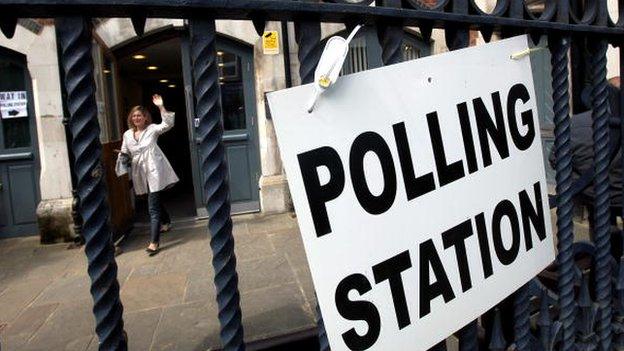
Supporters of e-voting say the UK election system is "ossified"
Another argument in favour stems from voter disengagement and low turnout in many democracies around the world, including the UK, where nearly 16 million people did not vote at the last election. E-voting encourages participation, say campaigners, especially among young people.
"There's a fantastic head of steam now behind this issue," says Graham Allen, the Labour MP who chairs the Political and Constitutional Reform Committee.
In a report on voter engagement published last month, external, the committee recommended that the government should run online voting pilots in the next parliament "with a view to all electors having the choice of voting online at the 2020 general election".
"I couldn't have got my committee to agree to recommend online voting a year ago but people realise our democracy is broken and we have to find radical ways to fix it," Mr Allen said.
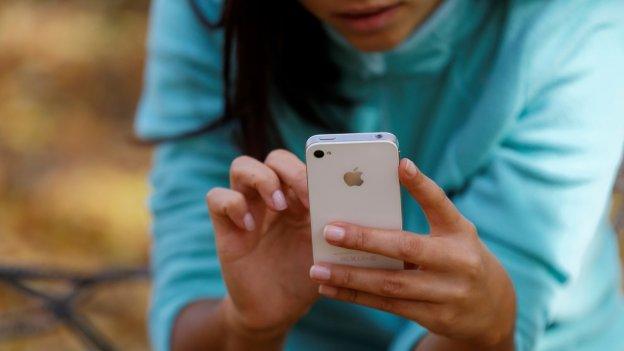
The ability to vote by smartphone would engage young people in politics, say campaigners
"My 17-year-old daughter lives off the web and email. Her generation will jump at the chance to get involved," he said, adding that he believed that just having the option to vote online would increase interest in elections among young people.
A fellow campaigner is the Labour peer, Lord Malloch Brown, a former minister in the last Labour government and an ex-deputy director of the UN, who is now chairing an e-voting technology company.
During his international career, he observed many elections in emerging democracies and became convinced that the best new technologies offered the best protection against fraud and manipulation while encouraging greater participation.
"The UK's system of voting has been ossified. It's based on centuries of social trust, but that trust is being gnawed away" he said.
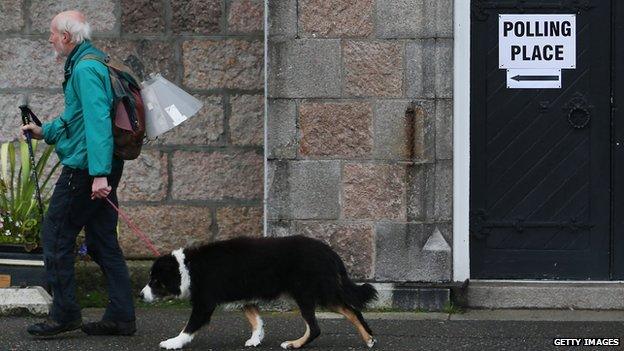
A voter in this year's Scottish independence referendum casting his ballot in traditional manner
Allegations of irregularities during this year's local elections in the London borough of Tower Hamlet, and concerns about the general security of postal votes had contributed to the erosion of trust, he said.
"What's extraordinary is we have a system in the UK that has a very high fraud risk but because there's a general trust we've not reconciled that contradiction. When we do things will start to change."
Lord Malloch-Brown believes the increasing fragmentation and plurality in British politics is putting more strain on the voting system.
"The breakdown of the two-party monopoly is going to lead to more competition and more contested elections. This will focus attention on the reliability and security of the systems we use."

E-voting at-a-glance
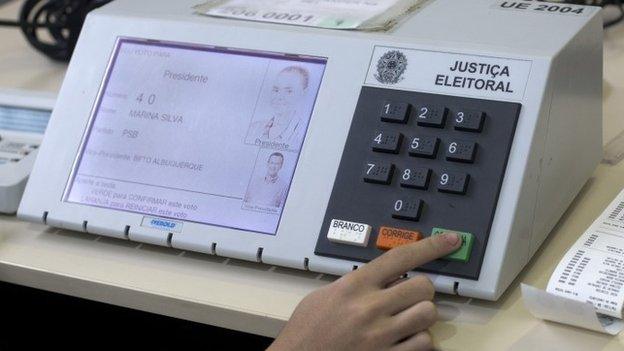
Electronic ballot boxes are used in several countries, including Brazil
Electronic voting began in the 1960s with the use of punched card systems
More modern systems include electronic machines in polling stations operated by buttons or touchscreens which connect to a central database
Countries using forms of e-voting include the US, Brazil, Belgium, Estonia, the Philippines and India
The term "e-voting" includes online voting where electors can cast their ballot from any computer using a secure ID

But critics of e-voting worry about security and fraud, particularly the risk of hackers breaking into automated systems.
They point to examples such as the Netherlands, where e-voting was used extensively from the late nineties until 2007 but then banned because of security concerns.
Lord Malloch Brown says it is important to make the distinction between supervised and unsupervised systems. There is no reason why supervised e-voting systems, such as those his company manufactures, should not be adopted more widely, he argues,
"They are much more secure than postal votes. The technology we use is very advanced, with high levels of encryption," he says.
His company has provided e-voting technology to countries including Brazil, Bulgaria and the Philippines. He described how, in the Philippines, different software was used in each of the 80,000 polling stations.
And because most elections are held in a single day, he argues, the results can be registered and collated before hackers have time to break into the systems.
But he admits the technology for unsupervised voting needs to be developed further.
"In truth, online voting is not as secure as going to the polling station. The issue of biometric ID is not sufficiently tied down," he says.
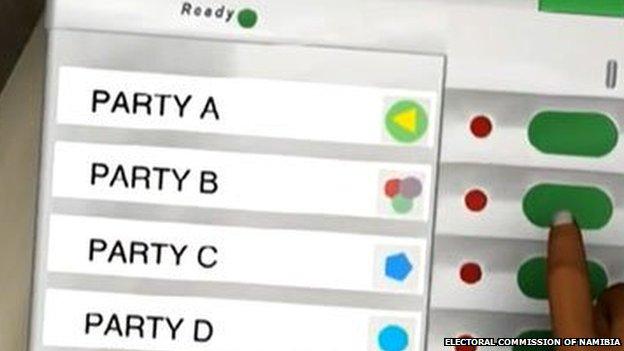
A number of countries have been trying types of e-voting - ballots were cast by pressing a button in the polling booth during November's elections in Namibia
Concern over security is the main reason the UK government has so far resisted any significant moves towards e-voting. Cabinet Office Minister Sam Gyimah told the political and constitutional affairs committee there were "more downsides than upsides" to the technology.
Graham Allen acknowledges the concerns are legitimate, particularly with regard to online voting from PCs or mobile devices.
His committee heard evidence from an electoral law expert, Professor RA Watt from Buckingham University,
"It is quite clear that voting outside the controlled environment of the polling place is susceptible to individual... and organised or strategic fraud," Professor Watt said.
"There does not seem to be a technology which guarantees that a device is being used exclusively by a bona fide registered voter acting freely in accordance with his or her own wishes; in the way that seclusion in a supervised polling booth enables a voter to act freely."
But Mr Allen said: "Where there's a will there's a way. We need to put the best brains on it. Remember that millions of people trust internet banking systems."
The UK's Electoral Commission is reviewing the voting system, examining different options including internet voting.
"This is not an issue that can stay on the slow-track any longer," says the commission's head, Jenny Watson.
"Whether it is the ability to register to vote on the day of the election or voters being able to use any polling station in their constituency, or the introduction of advance voting, or even more radical options... we plan to look at a variety of options, assessing how they will help citizens engage more effectively."
Ms Watson hopes the government's preliminary step of allowing people to join the electoral register online will help boost turnout in next year's general election.
The country leading the way in e-voting technology is Estonia, under the leadership of its tech-savvy Prime Minister, Taavi Roivas.
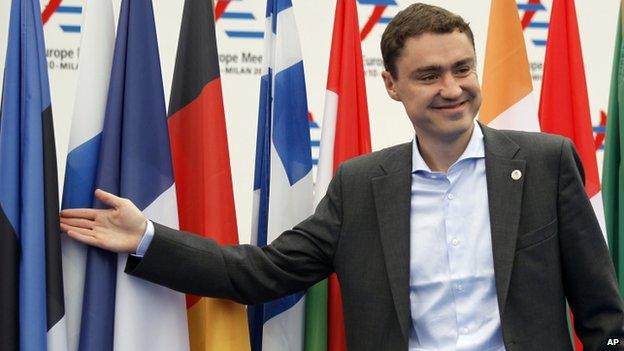
Taavi Roivas became, at 34, the EU's youngest leader when he became PM in March
Estonia has a national database of all its citizens and its voters can cast their ballots from any computer anywhere in the world, using an identity card with a computer-readable microchip.
But even in Estonia, two thirds of people choose to visit polling stations to cast their e-ballots even though they don't have to.
"Voting is an act of ritual citizenship and that is not something we want to or need to change," explains Lord Malloch-Brown.
"There will never be a technology which is a substitute for culture. But that does not mean we should resist technology which could transform participation."
One of his favoured systems involves voters casting their ballot digitally in a polling station and then printing out a hard copy which they can post in a ballot box as a back-up.
There is something psychologically reassuring about having that piece of paper," he says.
- Published10 June 2014
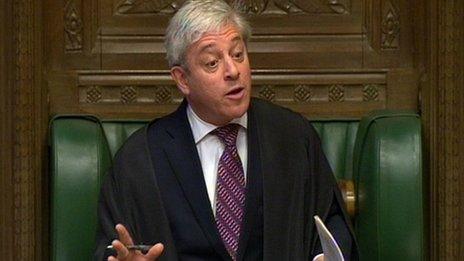
- Published28 November 2013

- Published27 June 2014
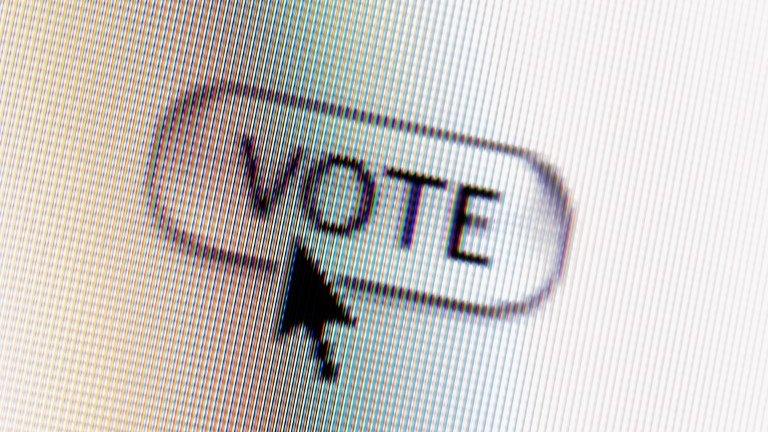
- Published1 July 2014
